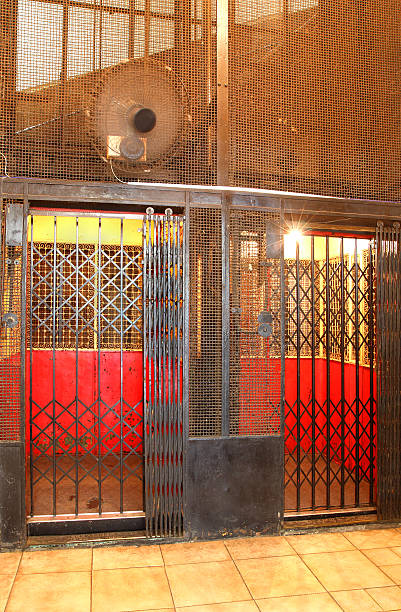by Bud Sturguess
My brother and I roared down the highway in a 1991 Camaro. It was one of those cars that you knew the last guy who drove it was the king of his high school. You could still smell it in the upholstery.
We soared in that Camaro. We broke the sound barrier. But we didn’t feel it. We didn’t feel anything. I guess that’s what got us in the rusty Camaro in the first place: being numb. Not feeling. Wondering if we were still alive. That’s why we robbed all those banks. As a test. To see if we were really alive. The biggest things in the news were Ukraine and the doomsday comet everybody was scared to death of. But even those things didn’t stir us.
You hear about bank robbers, sweating bullets. Full of adrenaline. The rush and the power. The power over the tellers and the big fat bank president as their eyes blaze in terror at the sight of a pair of Maverick 88s.
Not loaded, soulless. Two shotguns as empty as the both of us, my brother and me.
I guess the experiment failed. We were still numb. We were still nobodies. We felt it. Feeling like nobodies was about the only thing we did feel.
And being nobodies, we couldn’t understand why the state troopers were so determined in their pursuit of the Snyder brothers: a rotten old Camaro, two empty shotguns, thousands of dollars in cash, useless, ruined by a sudden blast of pink.
We didn’t think of it at the time but, how much harder would their boots would have hit the gas, how many more state troopers would have joined in the convoy, if we’d been somebodies? Me a poet, poet laureate no less, my brother a surgeon, saving lives for free in Haiti.
Why were they so concerned about us now? I was too full of Zoloft and Zyprexa to win a Pulitzer or craft the next Leaves of Grass. My brother had too much vodka in his brain to dig around in somebody’s spleen, even at a charity hospital.
We weren’t even that impressive as bank robbers – no shells, no shouting, no masks. (I had the idea we wear Donald Trump masks, just for a gag, but we forgot to buy them. Too foggy-minded to remember, I guess.)
We didn’t even tell anybody to get down on the floor. We didn’t want people face down on cold marble. We didn’t want to make some trembling young lady just out of high school open the vault and dump jewels and gold into our Trick or Treat bags, so to speak.
Trick or Treat – my brother and I never brought up Halloween. The
Halloween I was 11 and he was 9. We got lost and our cousins ditched us. Some older kids, bigger kids, started chasing us. I grabbed my brother’s hand and we ran as fast as we could, outran those punks.
We never made a pact, never said a word, but it was an unspoken agreement that we’d never speak of that Halloween – his hand gripping mine, mine gripping his, clinging to each other. Talking about those things can make you drop dead from shame.
I could’ve thrown up on the kitchen floor the day I was 16 or 17 when our mother said to me, “that Halloween night was so special to me, the way you and your brother took care of each other like that.”
I wasn’t above pretending to vomit.
She put a curse on us one day when we were fighting: “someday, you two will be all you have.”
Enough to make you shudder.
So, it was obviously agreed that we didn’t hold hands as we roared down the highway. His knuckles were bony as ever gripping the wheel. Mine were fiddling with the radio. At least one of us had the presence of mind, wasn’t too numb to know we needed a good car chase song. A short song, a good rock and roll song. Four minutes or less. That’s all I figured we had.
I found some good stuff: “Proud Mary,” “You Shook Me All Night Long”… I even stumbled across “Long Cool Woman in a Black Dress.” But none of it fit just right. My brother preferred silence in the car anyway, as a general rule. Anywhere we went, the only time he played the radio in that Camaro was to listen to Now This on NPR.
Boring.
NPR was even more meaningless to us now, all those updates on Ukraine and the doomsday comet they said would miss the planet anyway. We had no need, no use for the news as state troopers jammed up their CB’s with the Snyder name.
Those rotten, vicious Snyder brothers who held up the Merchant State Bank and gave an old lady a heart attack when she saw our twin Maverick 88s (the only thing about us that looked alike if you ask me).
Not that we didn’t deserve a good killing. That old woman never did anything to us. She probably never did anything to anybody. Probably never even went to a barn dance. She was probably at the bank to withdraw a crisp new 20 dollar bill for her grandson’s birthday. Next thing she knew she was a pale white lump on the lobby rug.
It was a waste of an old lady’s death. She should have died at home, surrounded by her loved ones. Her grandchildren and great-grandchildren.
All those sweet things that could give you diabetes.
There wasn’t a shell between us Snyder brothers, but it was all the same. We killed that poor old woman. Same as if we were the Dillinger gang, or those two guys in all the body armor in L.A. I saw a documentary about it – the Battle of North Hollywood. One of the guys was Romanian, I think. The cops had to bring in a freaking tank to stop those guys. Lunatics.
Not us.
We were just as rotten as they were, but we were just the Snyder brothers.
It was a mercy killing, some might say, when the comet hit the Camaro. What are the odds a comet all the way from outer space, another galaxy maybe, would zoom to Earth and land smack-dab on a ’91 Camaro carrying nobodies? Two unknowns with empty shotguns and useless money?
I could B.S. you and say it made us exceptional. Two in a million – two in a trillion – just the fact that a freaking comet destroyed us in a high speed chase. But that would be a lie. I think so, anyway. Though, you can’t help but wonder at the accuracy of that comet. Divine accuracy, some might say.
In any case, if God did it, if He sent that fireball from space just to blow us up, I have to disagree with His choice of weapon (but not His motive, mind you). It seemed like a waste of a comet. A perfectly good, beautiful brilliant comet.
Plummeting from the grandeur of the heavens just to obliterate two nobodies.
Bud Sturguess was born in the small cotton-and-oil town of Seminole, Texas. He now lives in his “adopted hometown,” Amarillo. Sturguess has self-published several books, his latest being the novel “Sick Things.” He is a collector of neckties.














